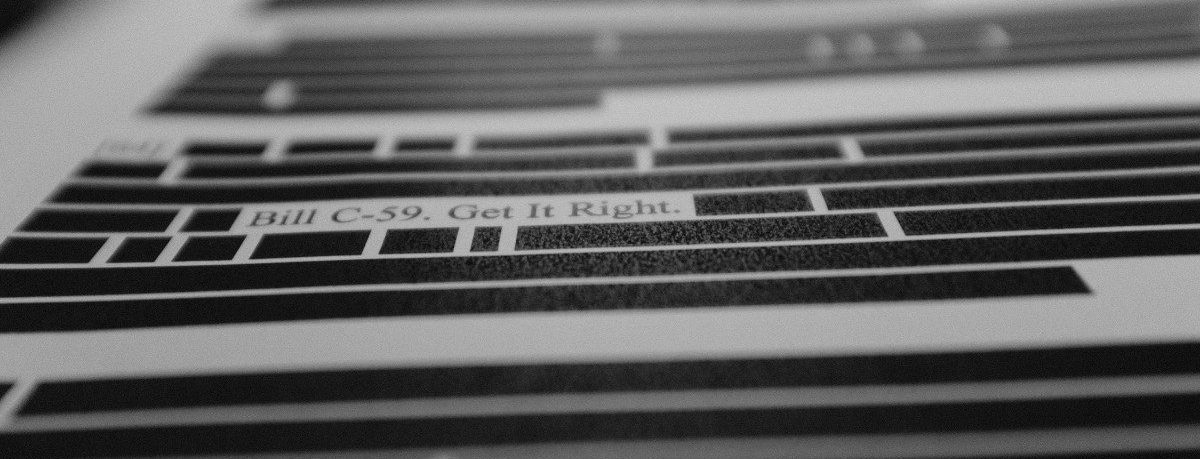September 19, 2017 — Today, 40 organizations and individuals from across Canadian civil society issued a joint letter to the Hon. Minister Ralph Goodale, the Hon. Minister Jody Wilson-Raybould, and the Hon. Minister Ahmed Hussen that lays out overarching concerns with Bill C-59, An Act respecting national security matters. Bill C-59 makes some meaningful and necessary improvements to Canada’s national security regime, but it fails to reverse the legacy of its unpopular predecessor, Bill C-51, and introduces serious new problems. It specifically falls short in mitigating the discriminatory impact national security activities continue to have on vulnerable minorities, which has in the past included conduct that contributed to the torture of Canadians.
The signatories all share the concern that — despite the message clearly delivered by Canadians during the federal government’s extensive public consultation on national security — the rights and freedoms guaranteed in the Charter are still not where they belong, at the core of Canada’s national security framework.
“All Canadian laws must comply with the Charter. Bill C-59 tries harder than its predecessor, but fails to fix some of the unconstitutional elements CCLA contested in our challenge of Bill C-51. Troublingly, C-59 also allows intelligence agencies to engage in conduct that threatens freedom of expression, freedom of association, privacy, and public safety. The government has taken a first step, but a great deal more is needed. Canada must get it right on national security.”
– Cara Zwibel, Acting General Counsel, Canadian Civil Liberties Association (CCLA)
Bill C-59 introduces some improvements to our national security framework, while reversing some, but certainly not all, of former Bill C-51’s excesses. It creates important new bodies to review and control national security activities; introduces a detailed and explicit new law for Canada’s signals intelligence agency, the CSE; adds new protections for the rights of youth involved in terrorism-related offences; and reforms the terrorist speech offences introduced by Bill C-51.
However the signatories also identify a number of matters of serious concern with respect to specific aspects of Bill C-59 which require critical attention and meaningful change, including:
- The newly-renamed Security of Canada Information Disclosure Act still permits far too much information to flow between too many departments – and for concerning objectives;
- The no-fly list still lacks adequate due process; while proposed redress mechanisms remain unfunded;
- Bill C-59 fails to reverse the low threshold for terrorism peace bonds established in Bill C-51;
- Preventative detention powers introduced in 2001 remain deeply problematic;
- While Bill C-59 restricts to some extent the risk that CSIS disruption powers will be abused, the government has yet to demonstrate the necessity or constitutionality of these powers;
- The newly created oversight agencies lack the guarantees necessary to ensure their effectiveness;
- The general risk that our security activities will once again contribute to torture remains;
- The bill introduces offensive hacking (“active” cyber operations) powers without a rationale for their necessity, or measures to adequately prevent abuse;
- Bill C-51 had eroded due process protections in security certificate proceedings, which Bill C-59 fails to reverse; and
- Bill C-59 legitimizes troubling conduct, including mass surveillance and extensive data-mining by Canadian intelligence agencies.
The letter, which sets out these and other issues in greater detail, can be found here in English and here in French.
Contact:
Cara Zwibel, Acting General Counsel
Canadian Civil Liberties Association
416-363-0321 x255
About the Canadian Civil Liberties Association
The CCLA is an independent, non-profit organization with supporters from across the country. Founded in 1964, the CCLA is a national human rights organization committed to defending the rights, dignity, safety, and freedoms of all people in Canada.
For the Media
For further comments, please contact us at media@ccla.org.




